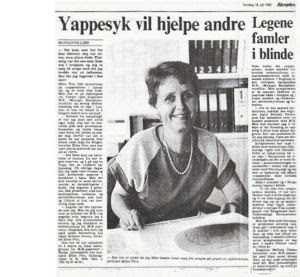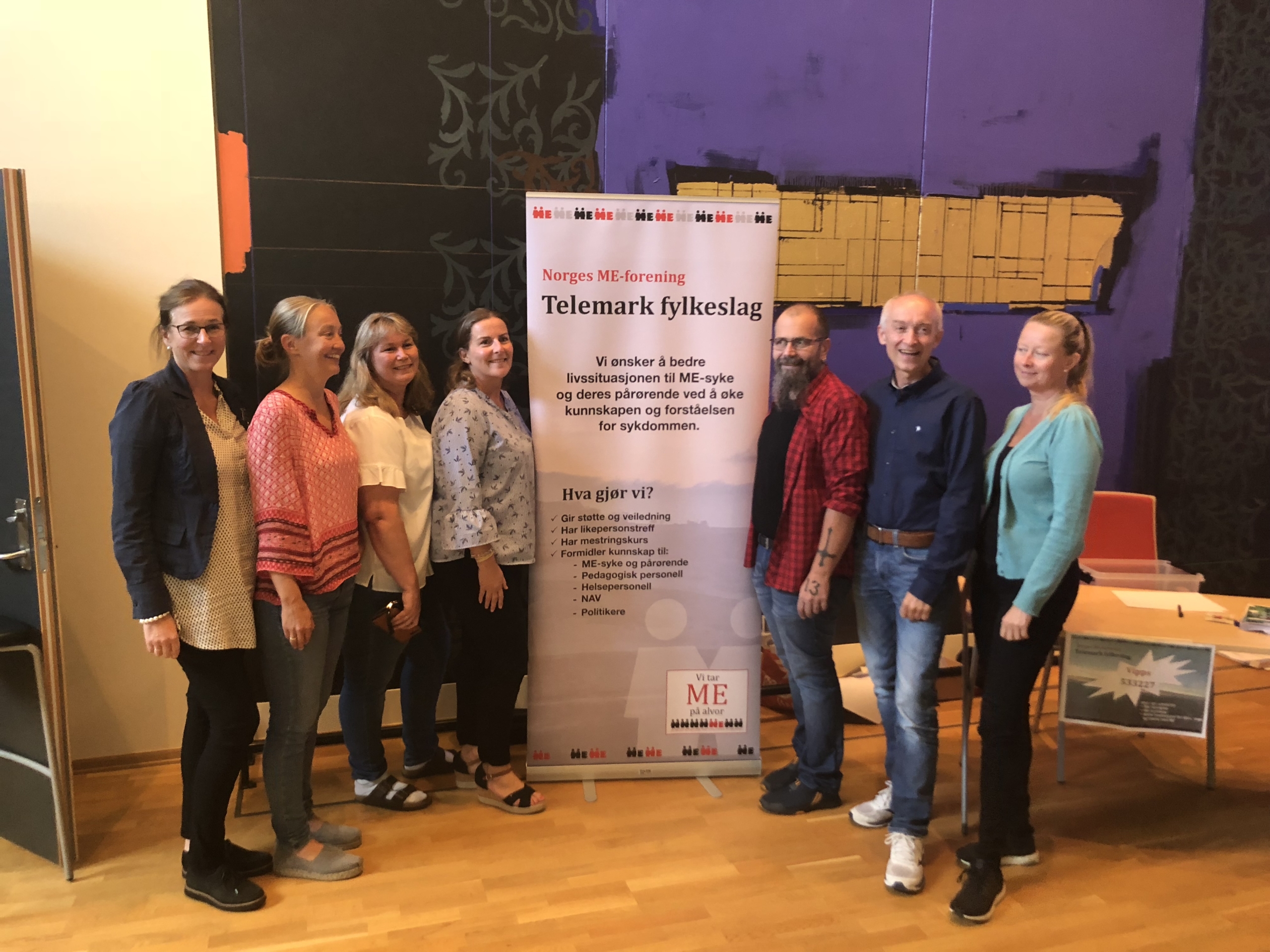Norwegian ME Association surveys
Patient surveys provide vital information to policy makers and healthcare and service providers
The Norwegian ME-Association has since 2012 undertaken several patient surveys to get information on, in particular:
- The situations for ME-patients (symptoms, limitations, course of illness and so on) and family caretakers
- The experience with health care providers, social security and welfare system, community services and the educations system.
The reports from the surveys are available for download on our website, in Norwegian. Where English summaries are available, we have linked to them in the text below.
This page contains information about the surveys undertaken by the Norwegian ME Association. You will also find som information about our organisation.
If you have any questions, please contact us at post@ME-foreningen.no
Starting with the latest surveys, the main ones are:
Pan-European survey of course of illness, in collaboration with EMEA (2021)
This survey targeting ME patients in Europe received more than 11 000 responses. We are currently in the process of writing up the report. The questions covered many of the same issues as the 2019 Course of illness survey (see below). A presentation of key findings is shown from 25:20 in the video below.
Course of illness (2019)
Severity
In 2019 the Norwegian ME Association conducted a survey on how ME patients had experienced the course of their illness, and which factors impacted it. We received 5 822 complete responses. Using the ICC classification of severity, «moderate ME» was the most typical category with 57% of the respondents. 1 in 4 (25%) state that they have a «mild» degree, although there may be reasons to believe that a lower proportion in the group “mild ME” have responded to the survey. 15% say they have a «severe» degree, while 1% have a «very severe» degree of the illness.
The oft-assumed typical course – a gradual improvement over time – characterizes only 12% of the respondents. Large fluctuations all the time (29%) and fluctuations with gradual deterioration (25%) are the two most typical courses of the illness.
Pacing is the best coping strategy
Activity regulation (pacing) is by far the most important positive factor for improvement, whilst too high level of activity is the most frequently reported negative factor. The healthcare service is mentioned 56% more frequently as a negative factor than as a positive factor for the course of the illness.
The approach taken by parts of the healthcare service, the welfare administration and the educational system contributes to a worsening of the illness for many patients. While there is a need for more knowledge, even more important is to use the knowledge we already have to offer support and assistance that is adapted to the patients’ needs and which is based on an understanding of the course of the illness and the factors affecting it.
Click here to download an English language summary of the report.
The severely ill (2018)
Little existing knowledge
There are no systematic studies of the (very) severely ill ME patients in Norway. In 2018, the ME association launched a patient survey with funding from the Norwegian Directorate of Health. We received 586 valid responses. The report sheds light on the situation for the severely ill group of patients in terms of disease burden, support from health and social services, and the role of family caretakers.
Limited access to adequate health care
The most severely ill ME-patients are an extremely vulnerable group with minimal or no margins, there even small mistakes can lead to long-term and serious deterioration. Everyone who works with the patient group needs basic knowledge of what characterizes ME, and must show respect for patients’ and relatives’ experience, needs and wishes. All forms of assistance must be designed in collaboration with the patient and any relatives. Yet, only 1 out of 3 said they felt believed by health care providers. 2 out of 3 stated that they – based on negative experiences in the past – are reluctant to get in contact with the health care system. Many reported that no help is better than the help they were being offered.
ME patients’ experience with rehabilitation stays (2017)
Persons who receive an ME diagnosis in Norway should be offered a stay at a rehabilitation centre (for several weeks). More than 2 000 responded to our survey about the experiences of this stay. Half of the ME patients have been offered a rehabilitation stay. Whether the patients have been offered rehabilitation or not was independent of when they were diagnosed and of the degree of severity.
Mixed experiences
More than half (56%) were satisfied with the rehabilitation stay. The social aspect is highlighted as the most satisfactory aspect. Yet, about ¾ disagreed or strongly disagreed that they were healthier immediately after their stay, and roughly the same proportion disagreed or strongly disagreed that they were healthier one month after. In the free text responses, many said that they experienced deterioration during their stay because too high efforts that were expected, and that the deterioration lasted for a long time.
Good information on PEM indicative of satisfaction
The experience varied greatly across the various centres. An interesting finding was that centres which gave information about PEM and had a biomedical approach to the illness had much higher score on patient satisfaction. The shares of patients that were satisfied and reported positive (or less negative) outcomes was about twice that of centres which did not provide any PEM information.
Children and adolescents and their families (2016)
Being young and having ME raise many challenges. 270 families with ME-sick children under 18 years answered questions about their experiences with the school, healthcare and municipal support services. In addition, 400 young adults and parents of children who were now above 18 years reported on their experiences.
Not enough help
Key findings included: only 4% are able to attend school full-time, while 29% are too ill for school at all; 63% consider the contact with the school’s management to be good or very good; 51% think the children have become worse-off from graded exercises; 64% currently practice some form of activity management (“pacing”), and very few report worsening after using this technique. While many experience good support from health care providers, 20% said they were treated so badly at their local hospital that they no longer dare to make contact, while 12% said the same about their GP. 87% of the children do not receive any form of assistance from the municipality.
ME patients’ experience with Nav (The Norwegian Labour and Welfare Administration) (2014)
Temporary unemployed and disabled people in Norway receive welfare benefits from Nav, but ME-patients have for years reported rather dismissing experiences. A survey with 1 200 respondents aimed to provide a more systematic overview of patient experiences. Although many received good help and the benefits are essential for making a livelihood, many experienced that they were not believed. The contact person’s knowledge and attitude are critical to achieve good results.
Made sicker by those who are meant to help
Based on all experiences with Nav in the period after they became ill, 43% answered that the experience had been bad or very bad while only 35% thought the experience had been good or very good. A significant share of the patients felt that the meeting with Nav had contributed to making them sicker. While there is currently no documented cure or treatment for ME, many were recommended or pushed (to continue receiving benefits) into various forms treatment or “work-testing” schemes, resulting in a long-term worsening of their condition.
The ME sick in Norway (2012)
In 2012, the Norwegian ME Association pioneered the first large-scale patient survey in Norway, to provide basic information on the disease burden, the experience with health care, social and other services, and the experience with various forms of treatment or management strategies.
The answers from 1 096 ME-patients painted a frightening picture of the everyday life of this patient group. 2 out of 3 consider their quality of life to be poor or very poor. Almost 3 out of 4 believe that the ME disease was triggered by a viral or bacterial infection, but some believe that it is rather long-term stress, vaccine or trauma behind. Many have tried different treatments and alternative therapies, with mixed results. Activity management (pacing) and relaxation techniques, as well as change in diets, get a – on balance – a favourable score. At the other end of the scale, half or more of those that have tried graded exercise therapy (GET), Lightening Process or progressive physiotherapy report on a (severe) deterioration of the illness. About half of the patients stated that they did not receive any medical follow up.
The Norwegian ME Association (Norges Myalgisk Encefalopati Forening, NMEF)
The Norwegian ME Association was founded in 1987, with the purpose of improving the situation for people with ME in Norway. Today, we have around 6 000 members, and we are involved in peer-to-peer support, systematizing patient experiences, advocacy, and sharing information about ME.
The Norwegian ME Association is registered as a charity. We are a democratic organisation, with regional chapters, an annual assembly, an elected national board, and a secretariat of ca. five persons in full or part-time positions. We believe we manage to achieve a lot and make a difference, despite our limited resources.
Peer-to-peer support
We have regional chapters in all the Norwegian counties. The local organisations are involved in peer-to-peer support, and also work closely with local hospitals and other health care providers.
We have a support phone line for ME patients, open most days of the week.
NMEF is present in social media. On Facebook we have several large, moderated self-help groups. We offer groups for young adults, adults, carers, carers for children with ME and for men with ME. We are also on Twitter and Instagram.
Advocacy
We have regular meetings with both politicians and bureaucrats in the Norwegian Ministry of Health, the Directorate for Health, and the Norwegian Institute of Public Health. We have user representatives in several groups and networks within the health system. Our goals are the same as many other places in the world: More money for research, more knowledge about ME throughout the health care system, and better access to health care and disability benefits.
Information
NMEF has produced several brochures and leaflets about ME. One of the best ways to educate doctors and other health care providers is to give good quality information to the patients, who again gives it to the provider. We regularly host webinars with a variety of subjects – from fresh research to coping strategies to legal advice.
Every year, we arrange a research conference aimed at Scandinavian ME researchers, in cooperation with the Norwegian Institute of Public Health and the Norwegian Competence Cervice for CFS/ME.
Surveys
We find that it is important to have numbers and representative patient experiences when speaking to politicians and health bureaucrats. From our Facebook groups, phone calls to our office and other contacts with patients we hear many stories about the problems faced by a large number of patients, but it is easy for politicians to dismiss them as just anecdotes. Our surveys provide us with facts and figures, which are much harder to ignore. Since 2012, we have undertaken seven large surveys with thousands of respondents. The largest, the course of illness survey in 2019, was answered by nearly 6 000 patients.










